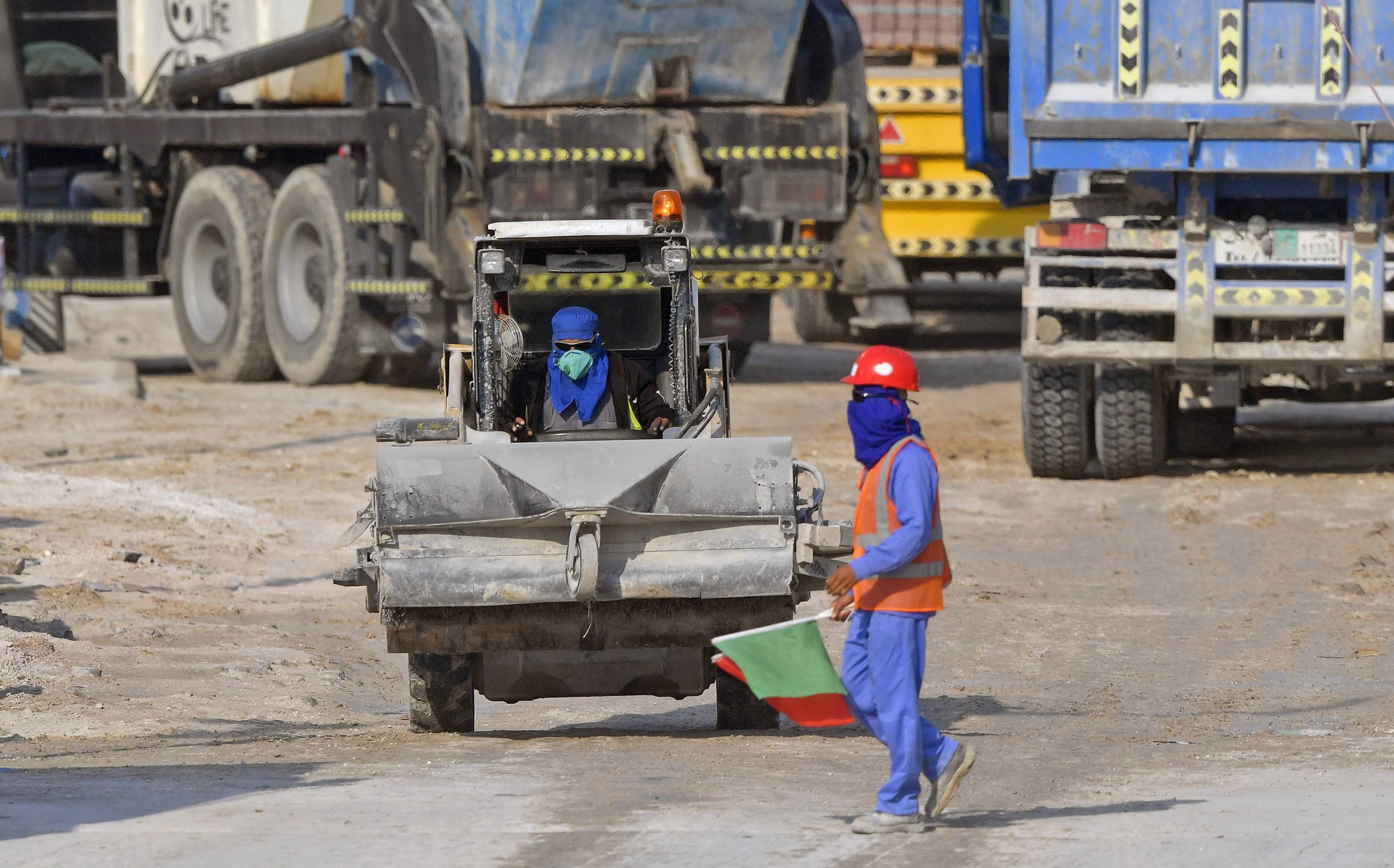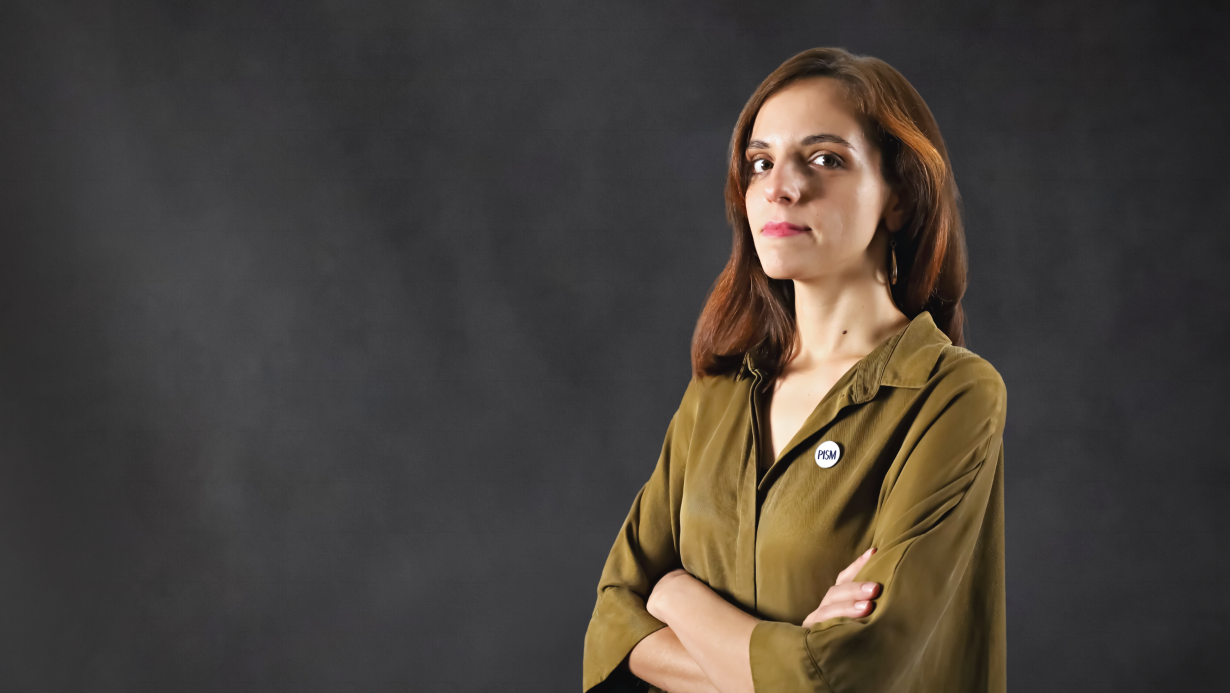Significance of Immigration for the Economies of Gulf Cooperation Council States

Immigrants in GCC Economies
The unprecedented scale of industrialisation and urbanisation of Gulf Cooperation Council (GCC) states as a result of the oil boom of the 1970s but insufficient local human resources contributed to increased demand for foreign workers. From 1975 to 1985, the percentage of these labourers in the workforce in the Gulf states increased from 39% to 67% (in 2019, it was 70.4%). They are mainly employed in the construction and sales sector and as domestic workers. The lack of regulations on minimum wages (imposed by the immigrants’ countries of origin over time) and flexibility resulted in lower costs for employers and contributed to the disproportion in the number of citizens and immigrants employed in private institutions. In 2017, the proportion of immigrants working in the private sector of the United Arab Emirates (UAE) and Qatar was 93% and 94%, respectively.
The systemic framework for employing immigrants is known as kafala. It regulates the legal situation and the relationship of immigrants with their local sponsor (a kind of intermediary, most often the employer). Depending on the country, obtaining and extending a visa, obtaining a permit to change jobs, and, until recently, even to return to one’s home country is up to the local sponsor. Relationships between immigrants and their sponsors are governed by ministries of the interior, not labour, which deprives foreign workers of protection under the local labour law. While kafala affects both educated white-collar immigrants and blue-collar and domestic workers, the latter are the most vulnerable to abuse. The most common forms are overexploitation of employees, taking their passports and preventing them from returning home. During the pandemic, foreign workers remained in crowded housing and with inadequate sanitation. This resulted in outbreaks of the virus. Increased criticism by international organisations of the conditions in which economic immigrants had to stay has forced changes in their situation in some Gulf states.
Nationalising the Private Sector
The dynamic population growth among native residents and the government’s concerns about the dependence of GCC economies on oil and gas exports contributed to increasing pressure on the nationalisation of the private-sector labour market. During the oil boom of the 1970s, as part of a redistribution of profits, states took over as the main employers of citizens. In 2016, the share of local employees in the public sector employed by the GCC averaged 65%. Work in the public sector is better paid (e.g., in Kuwait in 2019, the average monthly salary in the private sector was less than $4,000, and in the public sector, $5,000) and more stable than in the private sector. At the same time, creating additional jobs in the state sector was a way to stabilise domestic attitudes and ensure the sustainability of the monarchies’ power, as was the case after the mass protests over rising unemployment in 2011.
At present, however, weakened by oil price volatility, the GCC economies are no longer able to create sufficient public sector employment opportunities for the growing population. Since the beginning of the 21st century, the GCC countries have been implementing, respectively, Emiratisation, Saudisation or Qatarisation—imposing on companies in designated sectors (such as banking, medicine, or new technologies) a minimum percentage of citizens employed. Labour ministries create vocational training programmes for citizens and subsidise their wages. The nationalisation of employment in the private sector was conducted through government interventions, not market mechanisms. Until now, Bahrain has been the exception, where from 2016 foreign workers may change jobs without the sponsor’s permission.
The efforts to increase the number of citizens working in the private sector are also related to the demographic structure—people under 30 amount to 60% of Gulf citizens. In Saudi Arabia alone, the youth population increased by 66% from 2003 to 2018. The youth unemployment rate is twice that of the entire native population (11% in the UAE, 20% in Oman, and 27% in Bahrain and Saudi Arabia). Concerns about the rise in the number of unemployed due to the coronavirus pandemic have contributed to the intensification of efforts to modernise the employment structure. Saudi Arabia from September 2020 made it impossible for immigrants to work in some hotels and imposed a minimum 20% Saudisation rate in pharmacies. Kuwait authorities announced plans to reduce the proportion of immigrants from 70% to 30% and stopped issuing work permits to immigrants over 60 who did not graduate from higher education. In this context, one should also consider the recent changes in the kafala system in Qatar and Saudi Arabia where, respectively, from August and November this year foreign workers may change jobs without the sponsor's consent.
International Controversies
The countries of origin of economic immigrants in the Gulf (mainly India, Bangladesh, Indonesia, and the Philippines) are using the controversy over the living conditions of their citizens to try to improve their situation and increase budget revenues. Citizens working in the GCC are an important source of income via remittances for Asian countries. In 2016, foreign transfers from the Gulf to Asia amounted to $72 billion (out of a total of $98 billion). That same year, the Filipino government threatened to ban Filipinos from emigrating to Kuwait following the murder of a maid, using it to pressure Kuwaiti authorities to introduce a minimum wage for Filipino workers. As a result, Kuwait became the first Arab state to establish a minimum wage for domestic workers. The Indonesian embassy in the UAE, in turn, has enforced minimum wages from employment agencies, also threatening to block the economic emigration of Indonesian women, who typically work as domestic help, to the Emirates.
The changes in the legal situation of immigrants in the Gulf are also part of efforts to improve the image of the GCC countries, including related to their striving to organise and participate in international events. The pressure exerted by international organisations in the context of the UAE’s efforts to host Expo 2020 in Dubai or Qatar to host the 2022 World Cup contributed to the creation of measures by those countries to protect the rights of immigrants. Although the Qatari authorities introduced a wage protection system in 2015 and established a National Human Rights Commission, and in 2017 began cooperation with the International Labour Organisation regarding the situation of foreign workers, 34 immigrants died between 2013 and 2019 working on construction of infrastructure related to the World Cup (nine in 2019 alone).
Conclusions
Reforms concerning the legal situation of economic migrants in the Gulf are part of measures to increase the role of economic processes in the modernisation of labour markets. So far, the interventionist policy of the rulers of the Gulf states in this respect has not brought the expected results. Changes in the employment structure are necessary to reduce the risk of rising unemployment among GCC citizens, and thus for stability and to maintain the Gulf monarchies’ power. To increase the effectiveness of efforts aimed at the modernisation of labour markets, further deregulation of the kafala system and greater cooperation between the countries of the region (currently only superficial) and with the countries of origin of immigrants are necessary. At the same time, a sudden and significant decline in the number of immigrants in the Gulf (due to the changes introduced during the pandemic) may slow the development of the construction sector in these countries, as their citizens are reluctant to take blue-collar jobs.
Although the partial abolition of the kafala system is mainly motivated by economic needs, the international criticism of the living and working conditions of economic immigrants in the region has played an important role. Further involvement of international organisations is necessary to accelerate the changes of this system. Poland, as a member of the Human Rights Council, could join these activities by initiating deliberations at the forum of the UN HRC on the situation of economic immigrants in the world. Improving the living conditions of immigrants in the Gulf will also help monarchs maintain positive relations with the incoming U.S. administration, which is likely to be more critical of human rights abuses.


